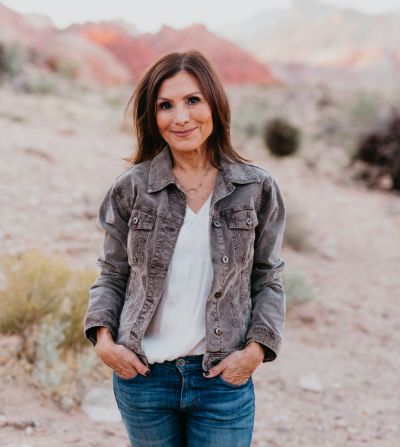A national monument designation for Avi Kwa Ame in Clark County will be vital in achieving President Biden’s goal to conserve 30 percent of the U.S. by 2030. Announced by the White House on Wednesday, Jan. 27, according to scientists, 30 percent is the bare minimum needed to buffer against climate change. A global initiative, 30 by 30 means safeguarding land, water, and wildlife and ensuring all people have access to the natural world. If designated Nevada’s fourth national monument, Avi Kwa Ame’s 380,000 acres will create a massive contiguous block of protected land critical to 30 by 30, an initiative with strong bipartisan support. Avi Kwa Ame will also be an economic driver for Nevada, adding to the state’s recovery.
“Nevada holds an integral position in our nation’s mission to protect 30 percent of our lands and waters by 2030,” says Nevada Assemblywoman Cecelia González of District 16. “A national monument designation for Avi Kwa Ame is an important step towards this bold and ambitious goal while also highlighting how protecting cultural sites and public lands can help mitigate future climate catastrophes. By protecting Avi Kwa Ame, indigenous communities and voices will be brought into this critical conversation.”
Considered sacred by 12 Native Tribes, the proposed Avi Kwa Ame National Monument means a protected corridor stretching from Lake Mead National Recreation Area in Nevada to California’s Mojave National Preserve, Castle Mountains, and Mojave Trails National Monuments, and the Dead Mountain Wilderness Area. A protected area of this size helps achieve the initiative’s goal that is supported by 71 percent of Nevada voters and 86 percent of voters throughout the country.[1]
Protecting Avi Kwa Ame will also provide economic power to neighboring communities like Searchlight, Laughlin, and nearby Las Vegas. The area is a hotbed for outdoor recreation, which in 2019 accounted for nearly $5.5 billion in Nevada’s economic output, up from roughly $5.1 billion in 2017. Outdoor recreation generates 3.1 percent of Nevada’s gross domestic product, which is higher than the national rate of 2.1
percent.[2] Studies show that counties with a larger share of protected federal lands, including National Monuments, on average have better economic performance in four areas, population, employment, personal income, and per capita income.[3] Outdoor recreation economies can attract new residents with higher household income relative to people moving to non-recreation counties, including business owners, entrepreneurs, or retirees.[4]

“Healing and restoring nature is essential for our wellbeing and is a key part of Nevada’s sustainable economic recovery effort,” says Alan O’Neill an advisor with the National Parks Conservation Association. “As a national monument, people will still enjoy recreating at Avi Kwa Ame yet the area’s many valuable resources, including its dark night sky, will be protected from development.”
Studies show that 80% of the world lives under some type of light pollution. Many children grow up never having experienced a dark sky; even some adults have never seen the Milky Way.
For more information, please visit www.honorspiritmountain.org.
[1] Hart Research Associates commissioned by the Center for American Progress
[2] November 2020 report from U.S. Department of Commerce’s Bureau of Economic Analysis
[3] Headwaterseconomics.org http://bit.ly/36lYOjm
[4] HeadwatersEconomics.org http://bit.ly/2KYbSUG
